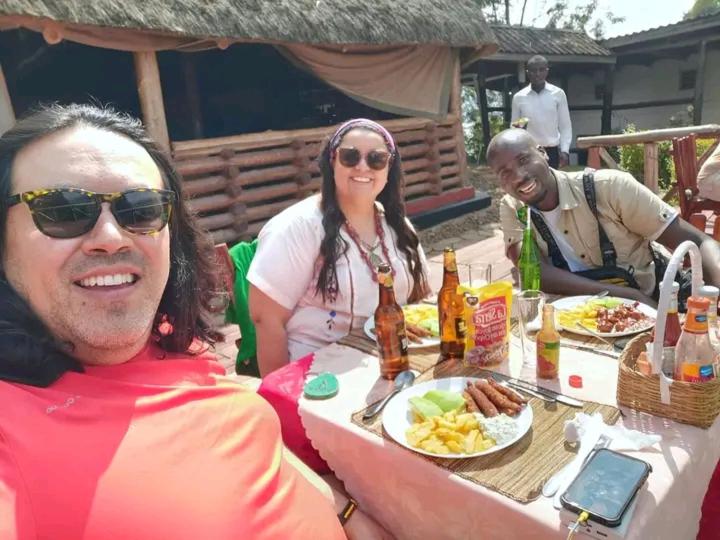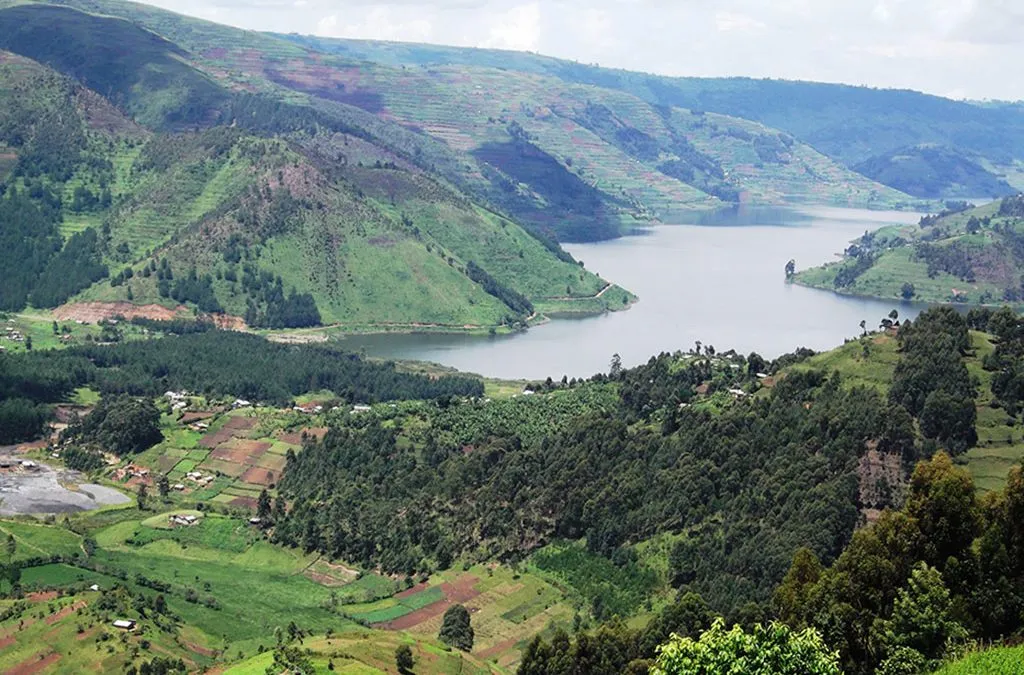Complete Guide for Culinary Experiences in Kabale for Foodies
Discovering the Soul of Kabale Through Its Flavors
In the far southwestern corner of Uganda, nestled within lush green highlands and kissed by misty winds from Lake Bunyonyi, lies Kabale, a town that has steadily carved its place not only as a gateway to Rwanda and the gorilla parks but also as a rising star in the country’s culinary map. To the casual visitor, Kabale may first impress with its rolling hills and cultural vibrancy, yet beneath this beauty lies a culinary treasure trove waiting to be savored. Food in Kabale is not merely nourishment; it is an expression of tradition, community, and the essence of daily life.
For food lovers who seek to go beyond ordinary dining, Kabale offers a captivating immersion into flavors that reflect Uganda’s heritage, infused with subtle influences from its proximity to Rwanda and Congo. From smoky roadside grills to hearty traditional dishes prepared in clay pots, and from the delicate freshness of organic vegetables grown on terraced farms to the communal experience of sharing a meal, Kabale presents itself as a destination where food becomes an unforgettable journey. This guide unveils everything a passionate foodie needs to know about experiencing Kabale through its culinary heritage.
The Cultural Significance of Food in Kabale
In Kabale, food is not an isolated act but a communal experience deeply rooted in cultural identity. Meals are woven into family life, ceremonies, and even everyday conversations. Visitors who engage with locals soon discover that to understand Kabale is to understand the food that sustains it.
The Bakiga, the dominant ethnic group in Kabale, have historically depended on farming as their lifeline, cultivating sorghum, beans, millet, and Irish potatoes in the fertile volcanic soils. Their culinary traditions reflect this agricultural heritage. Sorghum is brewed into traditional beverages that are central to celebrations, while potatoes, introduced during colonial times, have now become one of the town’s culinary signatures. In the countryside, cooking is still done over wood fires, a method that infuses meals with earthy, smoky flavors rarely replicated in modern kitchens.
Sharing food is considered an act of unity, and visitors who find themselves invited into a Bakiga household are often welcomed with an abundance of dishes prepared with care. Food here tells stories of resilience, identity, and togetherness, allowing a visitor not only to taste Kabale but to feel it.
Traditional Dishes Unique to Kabale
Kabale boasts a distinctive cuisine shaped by its climate, geography, and history. Its cooler highland climate has influenced the cultivation of certain crops, and this, in turn, has defined the meals that locals enjoy. Among the most celebrated dishes are those rooted in simplicity yet bursting with character.
The renowned Irish potatoes of Kabale are widely regarded as some of the finest in Uganda. Their taste is enhanced by the mineral-rich soils of the Kigezi highlands, producing a flavor unmatched elsewhere. Visitors will encounter these potatoes boiled, fried, or roasted, often accompanied by beans stewed in thick gravies.
Obushera, a fermented sorghum porridge, holds pride of place in traditional households. Served cold and slightly tangy, it is a symbol of hospitality and often accompanies community gatherings. The preparation of obushera is meticulous, requiring patience and knowledge passed down through generations.
Another staple is eshabwe, a sauce made from ghee that is often served during important functions. Though it may appear simple, its preparation demands skill, as the butter is carefully churned and blended until it reaches the perfect consistency. Paired with matoke or millet bread, eshabwe represents a culinary delicacy deeply tied to Bakiga heritage.
Stews made from locally sourced beans, peas, and vegetables are cooked slowly to allow the ingredients to meld harmoniously. Meat, though not consumed daily in many rural households, is often prepared for guests or celebrations, with goat and chicken being the most common. Roasted goat ribs or chicken prepared in banana leaves carry flavors that immediately transport one into the heart of Kabale’s food culture.
Influence of Geography and Agriculture
Kabale’s elevation and fertile soils have earned it the nickname “Switzerland of Africa,” and its agricultural abundance shapes much of its cuisine. The terraced hills produce not only Irish potatoes but also cabbages, carrots, and passion fruits, all thriving in the cool climate. This abundance of organic produce gives Kabale’s dishes a freshness that appeals to food lovers.
Lake Bunyonyi, lying just a few kilometers from the town, provides a source of crayfish and fish dishes that supplement the traditional fare. In local restaurants, visitors are often introduced to freshly prepared crayfish stews, which have become a favorite for both Ugandan and international visitors. The lake’s influence on the local diet has expanded Kabale’s culinary identity beyond the highland crops, offering diversity in flavors.
Street Food and Everyday Dining in Kabale
To truly embrace Kabale’s culinary scene, one must wander through its bustling markets and street-side eateries. The atmosphere in Kabale town is alive with the scent of roasting meat and frying chapati, creating a sensory invitation impossible to ignore.
Rolex, Uganda’s iconic street food, has found a special place in Kabale. It is a combination of fried eggs rolled with chapati and often paired with vegetables. Though common across Uganda, the freshness of Kabale’s vegetables elevates the dish, making each bite a vibrant reflection of the land.
Charcoal stoves line the streets in the evening, roasting skewers of beef, chicken, or goat. Locals gather to enjoy this informal dining, often with small cups of local brews. Visitors who partake in these street meals discover not only bold flavors but also the warmth of Kabale’s communal dining culture.
Small family-run eateries serve steaming plates of beans, potatoes, and vegetables at modest prices, offering visitors a chance to eat like a local. Dining in these places provides an authentic glimpse into the rhythm of daily life, far from the polished settings of hotels.
Modern Restaurants and Evolving Culinary Trends
While traditional dishes dominate Kabale’s culinary landscape, the town has also embraced modern dining trends that cater to both locals and international travelers. Restaurants around Lake Bunyonyi and within Kabale town blend Ugandan staples with continental flavors, reflecting the growing influence of global tourism.
Organic and farm-to-table dining has found a niche, with establishments sourcing fresh produce directly from local farmers. This movement has encouraged innovation, where chefs experiment with traditional ingredients to create contemporary dishes. For instance, Irish potatoes may be crafted into gourmet mashed servings accompanied by seasoned crayfish, or millet may be used in baked delicacies appealing to international palates.
The café culture has also grown in Kabale, with establishments serving rich Ugandan coffee paired with pastries that combine Western influences and local creativity. These spaces have become social hubs for young Ugandans and tourists alike, offering a modern complement to the deeply traditional culinary experiences.
Culinary Experiences Around Lake Bunyonyi
No exploration of Kabale’s culinary landscape is complete without a visit to Lake Bunyonyi. Surrounded by terraced hills and dotted with islands, the lake offers a serene backdrop for unforgettable dining experiences. Resorts and lodges around the lake serve freshly caught crayfish, which has become a delicacy strongly associated with Bunyonyi.
Meals by the lakeside often emphasize freshness and simplicity. Grilled fish paired with roasted vegetables and accompanied by tropical fruit juices highlight the natural bounty of the area. Dining while overlooking the tranquil waters creates a multisensory experience that transcends food, allowing the visitor to connect deeply with Kabale’s environment.
Cultural Festivals and Food Celebrations
Throughout the year, Kabale hosts cultural events where food takes center stage. Festivals celebrating harvests often involve communal feasting, showcasing the richness of local produce. Traditional brews are shared freely, music fills the air, and food becomes a unifying force that draws people together.
Such gatherings provide visitors with opportunities to sample rare traditional dishes not always found in restaurants. They also offer insights into how food plays a role in cultural preservation and identity. Participation in these celebrations allows a foodie to immerse themselves in Kabale’s living traditions, where every flavor carries the weight of heritage.
The Social and Emotional Experience of Eating in Kabale
Dining in Kabale is as much about emotion as it is about taste. The warmth with which locals serve food, the laughter that accompanies shared meals, and the patience with which dishes are prepared create an experience that goes beyond the plate. In Kabale, food is slow, deliberate, and infused with meaning.
Visitors soon realize that meals are not rushed affairs. Instead, they are opportunities to engage, converse, and connect. Whether in a family home, a bustling market, or a lakeside lodge, food always comes with stories—of the land, of ancestors, and of community resilience. For food lovers, these moments become cherished memories, transforming Kabale from a destination into a feeling that lingers long after departure.
Best Time to Experience Kabale’s Culinary Heritage
Kabale can be visited year-round, but the experience of its cuisine is particularly vibrant during harvest seasons when fresh produce floods the markets. The months of June to August and December to February often see a wider variety of fruits and vegetables, making these periods ideal for food lovers.
During cultural festivals, which frequently align with harvest times, the town comes alive with culinary activity. Visitors during these seasons witness the full breadth of Kabale’s food culture, from traditional feasts to modern innovations, creating an enriched culinary journey.
Savoring Kabale’s Flavors with WildHorn Africa
Kabale is far more than a stopover town on the way to gorilla trekking adventures. It is a culinary destination in its own right, offering flavors that speak of history, geography, and community. From the humble Irish potato to the refined eshabwe, from the lively street-side grills to the serene lakeside dinners, every bite in Kabale carries with it the essence of Uganda’s highland spirit.
For food lovers seeking a journey that intertwines culture, flavor, and natural beauty, Kabale provides an experience unmatched in depth and authenticity. To fully embrace the richness of Kabale’s culinary and cultural offerings, it is best explored with the guidance of those who understand the land and its traditions.
For those ready to embark on this unforgettable adventure, it is recommended that you book your African tours and safaris with WildHorn Africa, a trusted partner in curating journeys that combine exploration with authentic cultural immersion. With WildHorn Africa, every meal in Kabale becomes not just food but a story worth savoring.






